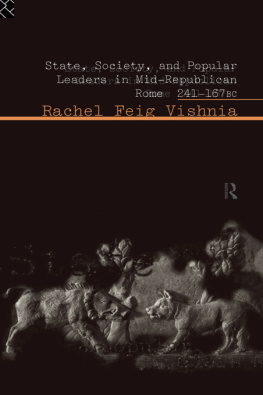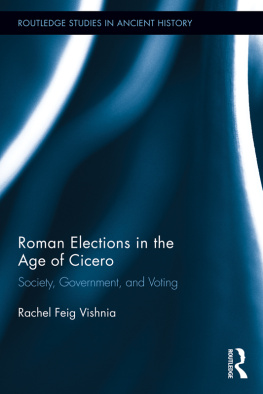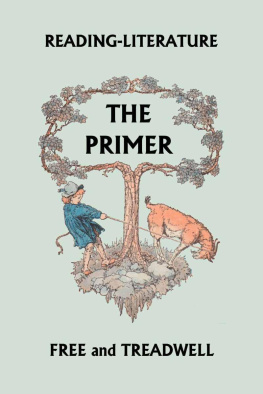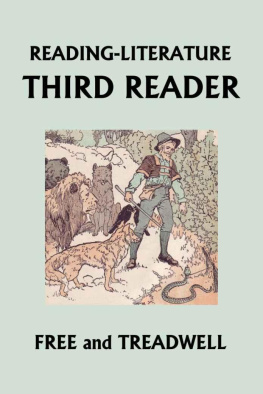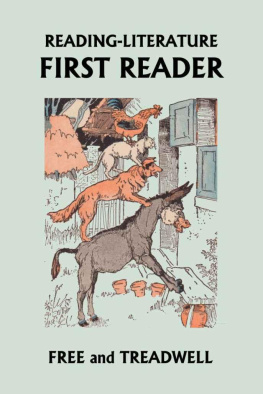PREFACE.
I had heard it so often positively asserted that modern Italy had no popular mythology, and no contribution of special versions to offer to the worlds store of Traditionary Tales, that, while possessing every opportunity, I was many years without venturing to set myself against the prevailing opinion so far as to attempt putting it to the proof.
A certain humble friend, however, used time after time so to impress me with the fancy that she had all the qualifications for being a valuable repository of such lore if it only existed, that I was finally led to examine her on the subject. She gave me a capital opportunity one day when, during a visit to a bedridden cripple whom she nursed, she was flapping the dust off the pictures and ornaments with a feather-brush according to the Roman idea of dusting. I never do any dusting, she said the while, but I always think of Monsignor Delegato dusting the altar of the holy house of Loreto. And now I think of it, he was not called Monsignor Delegato, but Monsignor Commissario. But every evening of my life while I was young and living at Loreto, I have seen him dust the altar of the Santa Casa at 23 oclock, before they shut up the church, saying a Salve Regina for the benefactors of the spot. If she was so familiar with Loreto, I concluded, and had so noticed and remembered its customs, probably she was not ignorant of its Legends either, and I commenced my inquisition at once.
I have not given her Legends of Loreto in the text because, being tolerably familiar, they were among those which could best be sacrificed to the exigencies of space. I gathered on that day, however, one version of S. Giovanni Bocca doro, with two stories of Padre Filippo: and her subsequent testimony concerning the crucifix of Scirollo came in usefully (pp. 193, 195) in illustration of the Legend of Pietro Bailliardo; but, what was precious to me above all, I gained the proof and earnest that there was certainly a vein of legendary lore underlying the classic soil of Rome, and that it only remained to find the means of working it.
I first lazily set myself to hunt through the bookshops, new and old, to find any sort of collection of traditionary tales ready made; but only with the effect of establishing the fact that no Italian Grimm had yet arisen to collect and organise them, and put them into available shape.
It is true the erudite and indefatigable Cesare Cant has found time in the midst of his more important labours to illustrate some few remnants of medival customs and sayings yet lingering in the north of Italy, in his Novelle Lombarde; and he tells me that the Balio Benvenuti, also of Milan, is bringing out another little volume about Lombard customs; but even these have not approached the fairy tales, and leave Central and Southern Italy altogether untouched.
The nearest approach to the material of which I was in search was afforded in the roughly printed rimed legends which itinerant venders sell at the church doors on festa days. Among the collection I have made of these, are many whose quaintness gives them special interest, notwithstanding their baldness of style and diction; but the matter which came to me first hand seemed to have the first claim to publication; and I have, therefore, put these among my reserve for a second series.
No repository of Roman Folklore was to be found ready-formed. Who among us, writes Cesare Cant in his preface to his Novelle Lombarde, knows anything about these matters? If they were the things of Scotland or Touraine we should all have read them long ago in the pages of Scott or Balzac. But here among us there are neither writers who care to describe nor readers who take any interest in learning the ways of our own country. People like to seem above giving their attention to such homely matters, and only care for what they must look at through a telescope.
I was thus thrown back on my own powers of collecting, and found the process, however fascinating where successful, much more uphill work than it had promised to be at the outset. Legends, it is true, there was less difficulty in obtaining. There might be some sense and some moral in them, and I found people were not ashamed of knowing them; but it long remained impossible to convince persons who had even betrayed to me indications that they possessed what I wanted, to own fully to a knowledge of bon fide Fairy Tales, or to believe that I could be serious in wishing to listen to such childish nonsense.
But suppose you had a child to amuse, I would say at last, I am sure you would sometimes tell it a marvellous story.
Ah, a creatura, yes! But I havent the face to tell such nonsense to your signoria.
Never mind that, if I want to hear it. Imagine I am the creatura, and tell me one of your tales. I want something about transformations, fairy gifts, and marvels of all sorts.
In some such way, after due precaution taken to convince me that such things were only allowed a place in the memory for the sake of amusing children, and not because anyone believed in them, one tale after another would be suffered reluctantly to ooze out.
But you cannot make application for such wares to the first person you meet. The class in which such lore is stored away is not indeed so exclusive that introductions to it are a very difficult matter, but introduction of some sort you must have; some claim for taking up a persons time, where time is money; and some means of compensation you must devise, the more difficult to invent where direct payment would be an offence. Your modern Romans are very independent; I cannot say whether the quality is more an inheritance from their ancient forefathers, or adopted from the continental spread of French revolutionary ideas of 93. True, they are singularly urbane and deferential, but only so long as you are urbane and deferential towards them. If you omit any of their peculiar forms of politeness, they are suspicious of you, and scarcely know how to make allowance for the well-meaning inexperience of a foreigner. If you want to learn anything from them you must submit to become one of them. You must converse first on the subject uppermost in their minds, from the price of bread and meat to the latest change in the political atmosphere; only when all is exhausted may you venture to come round to the matter of which you are in search. Many, too, in whose memories such stories have lain dormant since childhood, for more than half a century, have not the power of recalling them in due form or order for narration on abrupt application, but will yet bring them out unconsciously if patiently led up to an appropriate starting point.
Nor is it every application, made with all precautions, that will be successful. Often you must submit to be put off with the tantalising experience that a person knew plenty of stories, but was quite incapable of putting them into shape. This happened once with an intelligent old lady from Siena, whom, after allowing her to indulge her irony at my expense concerning my childishness in seeking such things, I brought to confess that she had heard in her youth a strange story of a cat which wore stivali di cacciatore (hunters boots), but she could not succeed in recalling a single incident of it; and I was obliged to content myself with the information (no small encouragement in the early days of my work, however!) that Puss in Boots had actually travelled to Tuscany.




